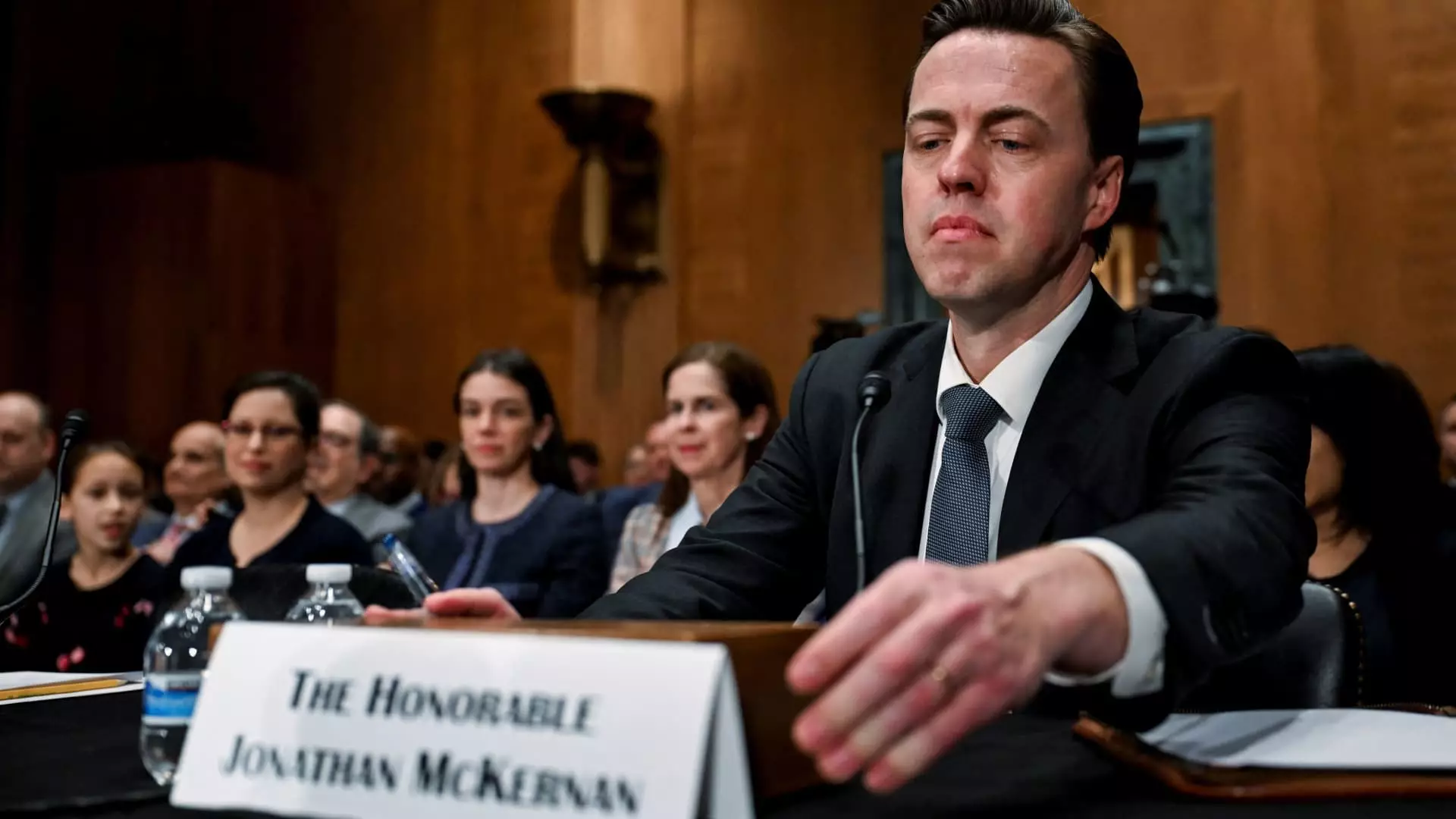The Consumer Financial Protection Bureau (CFPB) has often been a contentious agency in the realm of American financial regulation. Recently, the Senate Judiciary Committee held a confirmation hearing for Jonathan McKernan, President Donald Trump’s nominee to helm the CFPB. During this session, Democratic senators made it abundantly clear that they had concerns about McKernan’s ability to uphold the agency’s mission to protect American consumers. Their line of questioning revealed deep-rooted anxieties about the continuity and effectiveness of the agency under new leadership, particularly in light of allegations that the current administration might aim to dismantle it entirely.
McKernan, who has piqued interest due to his past experiences as a board member of the Federal Deposit Insurance Corporation and his tenure in corporate banking, articulated his understanding of the financial landscape shaped by the 2008 financial crisis. His assertion that he would “fully and faithfully” enforce the laws governing the CFPB struck a chord with some senators, particularly as he emphasized the need for a financial regulatory system that caters to the needs of the average American.
While McKernan’s expertise is undeniable, his effectiveness as a leader will ultimately hinge on his willingness to confront the pressing issues that face the CFPB today. By arguing that the agency had acted in a “politicized manner” under his predecessor Rohit Chopra, he seemed to indicate that he would pursue a more moderate and accountable approach. However, this raises questions: To what extent will he be permitted to operate independently, especially when the administration’s apparent disinterest in the CFPB could undermine his efforts?
The backdrop of this confirmation hearing paints a troubling picture for the CFPB. Acting Director Russell Vought has already initiated drastic cuts, including shuttering the agency’s office in Washington, D.C., and making significant staff reductions. Such actions not only threaten the operational capacity of the bureau but also send a message about the administration’s intent, which includes reports suggesting a desire for the bureau’s complete dissolution.
Senator Elizabeth Warren, a prominent figure in consumer advocacy, articulated the fears of many when she questioned McKernan’s capability to lead an agency stripped of resources and potentially its core mission. Her colorful metaphor about McKernan being “the No. 1 horse at the glue factory” perfectly encapsulated the sense of impending doom that seems to hang over the CFPB under the current political climate.
The legal obligations that come with leading an agency like the CFPB—such as maintaining an operational website and providing resources for consumer fraud complaints—are only as effective as the political will to support them. During the confirmation hearing, McKernan assured senators that he would adhere to statutory requirements. However, the question lingers: If there is little backing from the White House or the Office of Management and Budget, how effective can these assurances be?
Senator Jack Reed’s comments about the canceled lease and dismissed lawsuits against predatory lenders further demonstrated the precarious situation McKernan could face if confirmed. He urged McKernan to recognize the potential limitations of his mandate under the current admin. With significant obstacles like internal resistance and potential sabotage from higher-ups, can McKernan genuinely refocus and “right-size” the CFPB as he intends?
As the Senate considers McKernan’s nomination, the future of the Consumer Financial Protection Bureau hangs in the balance. The stark contrast between McKernan’s public assertions of fidelity to consumer protection and the administration’s apparent intent to diminish the agency’s power poses a significant challenge. If confirmed, McKernan will need not only to uphold legal and statutory obligations but also to chart a course through treacherous political waters that threaten to engulf the very essence of consumer protection in America. The discussion has raised critical questions about the agency’s viability in the current political context and what the future holds for the millions of consumers who rely on its protections.


Leave a Reply